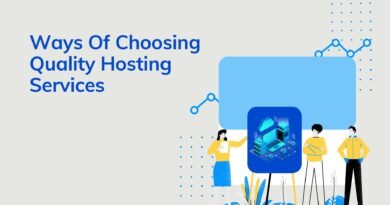What is Artificial Intelligence? How Can AI Change the Future In Healthcare
Artificial Intelligence is a technology that makes machines think like a human and perform tasks with great speed, diligence, and accuracy. Systems and applications in AI are developed using machine learning and deep learning languages. AI can revolutionize many industries and speed up the process, reducing human operations and intervention. It helps ease the operations in healthcare at various levels bringing better administration in this industry.
- Multitasking
It can be of great help in the administrative department where a single machine can handle multiple tasks such as answering calls, providing reviews of medical records, evaluating health trends, analyzing drug design, clinical trials, and even providing consultation to patients. These host of services can be handled by an AI machine eliminating manpower and human errors.
- Restore Sensory Experiences Through BCI Machines
Patients who have lost either of their sensory abilities such as speech, hearing, etc can communicate using a BCI interface that deciphers neural activities inside the brain and helps these patients communicate without the need of a keyboard or a monitor. It improves the quality of living of patients who have lost either of their sensory abilities. It helps them communicate naturally without the use of external peripherals.
- Detailed Information For Radiology Tools
Though today’s radiology tools offer a considerable amount of information on the internal organs, biopsy is still conducted to get a detailed view of the tissue. This method has the risk of causing infection. With the use of AI tools, detailed and accurate information can be received without the use of a biopsy. The behavior of tumors and its details can be accurately analyzed using these tools.
- Provides The Best Healthcare In Developing Nations
Nations such as Africa where clinical professionals are deficient can find the use of Artificial Intelligence tools to be a lifesaver. Apps are easily available that make administrative tasks easy in these developing nations where manpower in the healthcare industry is scarce.
- Identify Infection Patterns
Some antibiotics are unable to cure when there are superbugs that show resistance towards the antibiotics. The data from electronic records help in identifying the patterns of infection and notify if the patients are at risk at an early stage when they start showing symptoms. These records can help the healthcare provider take better care of the patient with an accurate diagnosis. They can help in controlling infection by providing accurate analysis and pave a way for smarter clinical trials.
- Accurate Diagnostic Data
Pathologists in the lab can create an accurate evaluation of the condition of the patient with the accurate data provided from the diagnosis. Since more than 70 percent of the analysis is done based on the pathological results, using AI tools provides faster and accurate results. The digital images created using AI tools provide clarity as they are made with pixels. It fastens the process of treatment where the patient does not have to wait longer for results. It overhauls the entire process of treatment.
- Creating A Smart Medical Environment
AI tools provide cost-effective solutions in various departments of healthcare, especially, they require complicated analysis. It also reduces the cost of penalties when dealing with process compliance. An integrated system in the healthcare industry provides faster and accurate results reducing cognitive manpower and stress.
- Cancer Treatment
Immunotherapy is the most effective method for treating cancer. The systems are integrated with machine learning algorithms patients can be treated even the most stubborn tumors successfully. Complex data that is fed in these algorithms can create customized treatments for the targeted patients as per their genetic design.
- Monitoring With Wearable Devices
It becomes easy to track various aspects of patients’ health using these wearable devices to monitor the status of their health. There is a huge collection of healthcare wearable devices that helps in tracking the health of the patient. Apps as well as home monitoring devices can be installed making treatment a convenient option. It is easy to extract patient data from these devices that collect significant amounts of information that help with the individual treatment of patients.
- Decision Making
It helps in making accurate decisions about the duration of treatment for the patient. The EEG dataset provides valuable information about the patient’s physical, mental, and emotional condition that help in detecting the cause of the disease. Long term patterns from the movements, expressions, and actions of the patient provide accurate analysis of the condition of the patient.
Conclusion
In the coming years, patients no longer have to visit hospitals except for special or acute care as most of the health issues will be monitored using remote Artificial Intelligence tools. These tools help in detecting the health of the patients at home and notify the hospitals when the condition of the patient deteriorates. The best care is provided based on this information. Artificial Intelligence brings better patient and staff experience and helps in remote treatment with accurate diagnosis and analysis.
Above knowledge was by listening to many audiobooks, as a blogger myself sometimes reading in a hectic schedule becomes tuff, however that should stop for acquiring knowledge. So I’ve started listening to audiobooks while in free time, spending 20-30 mins every day will give additional experts learnings, I liked it so much that I even started a blog. If you want to start investing in knowledge check out my top audiobooks of all time, I’m sure you will like it.




